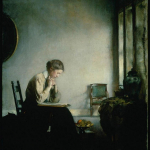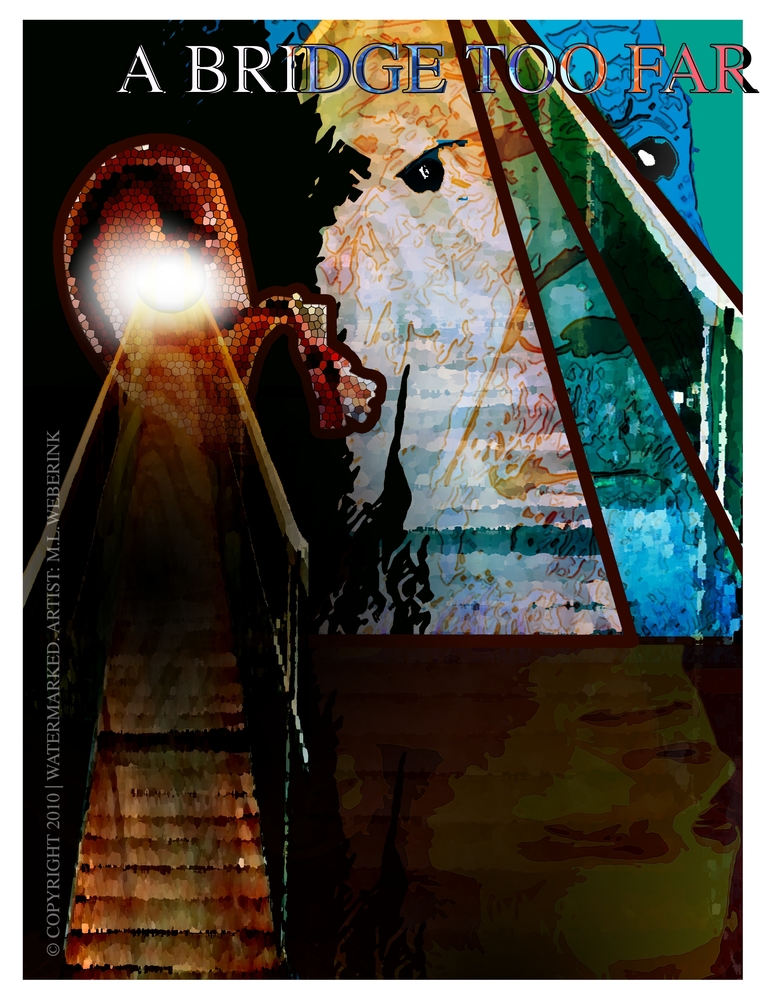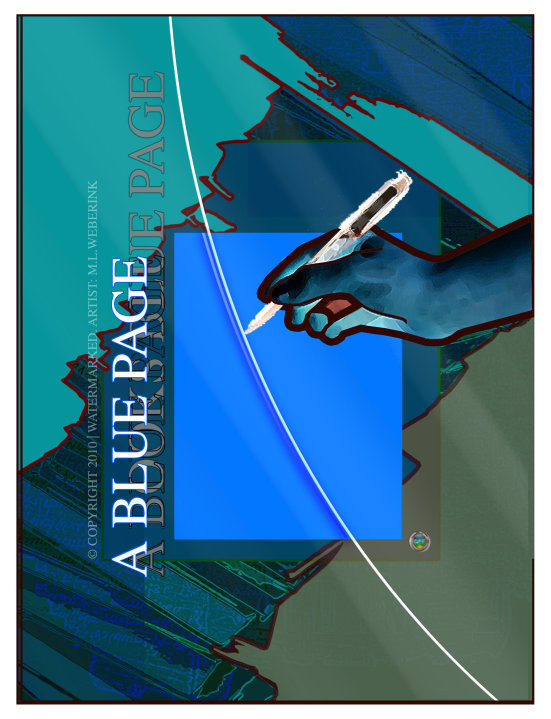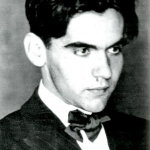… SICK OF BEING A MAN ~ BY VICTOR M. ALONSO
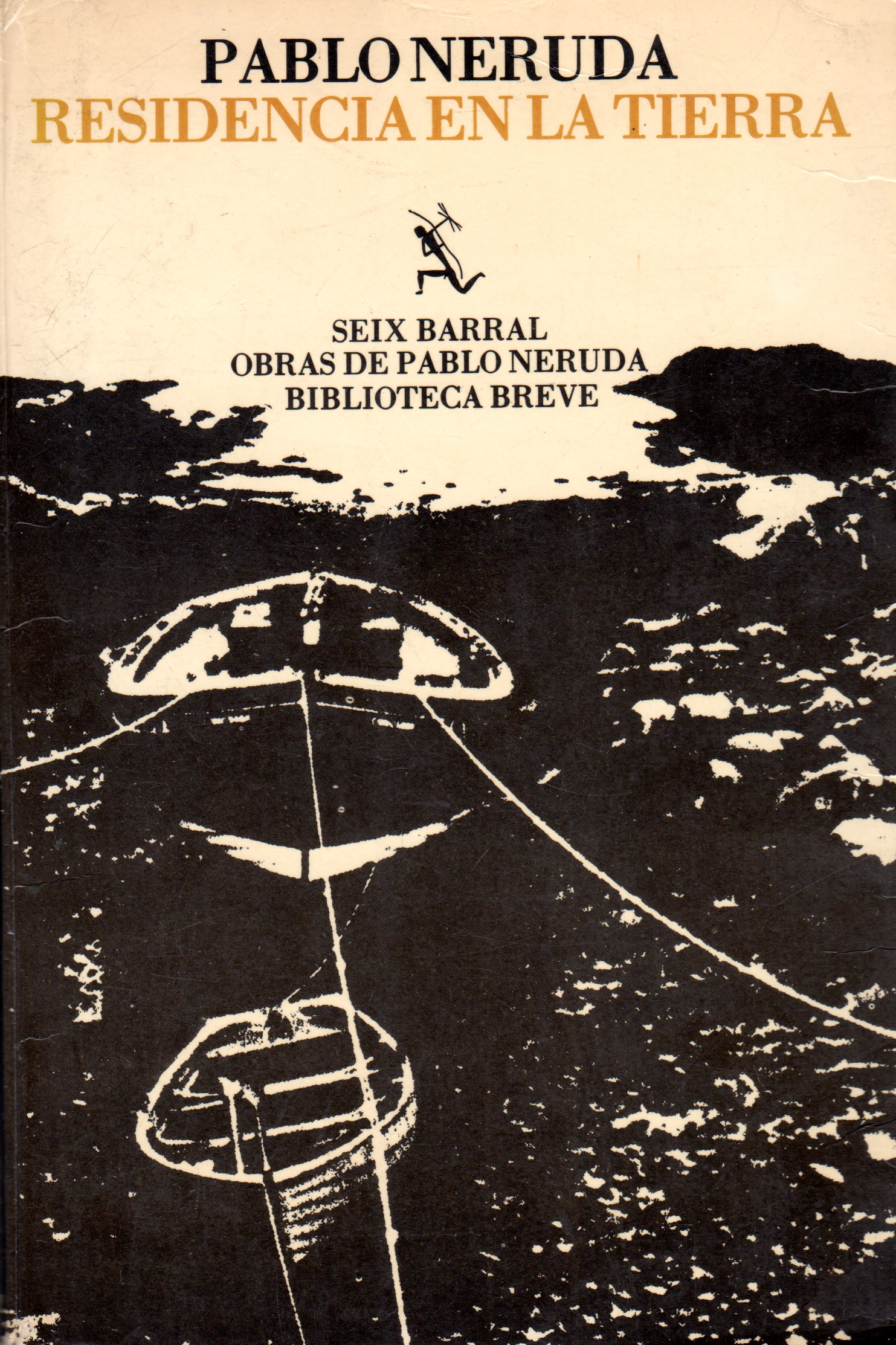
Borges said that “beauty is a physical sensation, something we feel in the whole body”; and must be so. The feelings impact us in the solar plexus, the heart, the chest. Now I do not intend to enter into the eternal dispute about the ideal of beauty, I always imagined that it is subjective, despite the canons that the influential mass media seek to impose. What is beautiful to me might be found mediocre by you.
However I do believe that there is a meeting point. At that point is where enters into action the genius, those few creators that have the privilege of getting you and me, irrespective of our different points of view, to feel the impact of beauty there, at that part of our bodies that alert us that what we see, smell, touch or read is beyond any possible definition and that conforms to what our dear Borges called “the aesthetic fact”, something that makes universal the sense of beauty.
Something like that happens to the poem by Pablo Neruda, Walking Around. I guess this is because we tackle some verses that touch the depths of our being, something which highlights our deepest frustrations and our most candid desires. “I am sick of being a man”, “the smell of barbershops makes me brake into hoarse sobs”, although “still it would be marvelous / to terrify a law clerk with a cur lily, / or kill a nun with a blow on the ear.” I think that these lines reflect the essence of Neruda’s poem, which is essentially beautiful, full of metaphors deeply forged in the fires of helplessness, images carved in the round of sadness, which unravel the guts of this world of shit which we live.
I do not pretend to analyze the poem. It would be a futile effort. Above all poetry is written just to be loved, to feel it on guts and heart, to be lived in the same way that we would live a tender and sensitive lover. Poetry is like a beautiful woman who offers us a breath of hope.
My sole intention is to bring to the memory of those who want to read these words a beautiful poem written by Pablo Neruda around year 1930, while living in Spain and rubbing elbows with the Spanish poets of the 1927 generation (Rafael Alberti, Federico García Lorca and others), those comrades that were very influenced by him.
My intention is to also evidence the character of Neruda, rebel, restless fighter. I just want the reader to understand how poetry in Spanish at that time opened its doors to allow the entry of the influence of the avant-garde poetry to a language that was in need to breath fresh air and that, perhaps, was stucked in the great classics of the Golden Age of Spaniard Literature. To make the jump contributed this good-natured Chilean, this enormous man whose genius is unquestionable and the vastness of his work left over to get the Nobel Prize for Literature in 1971.
WALKING AROUND is just one of the poems included in the Segunda Residencia, which in turn is part of a larger work entitled Residencia en la Tierra. Neruda’s poetic cosmology reached maturity by these exquisite years, when he wrote this collection of poems, full of many influences, many of them dragged from their origins in South America as well as the Spanish literature, and other new ones coming from la France del surrealisme, and the Europe that wanted to change the aesthetic world with the power of dreams.
I do not want to bother anymore. I leave you with the reading of this beautiful building of desires and regrets called WALKING AROUND, which will hopefully help us all to appreciate the excellence of beauty, and to remember that beyond the dismal daily life in which “That’s why Monday, when it sees me coming with my convict face, blazes up like gasoline” where “there are mirrors / that ought to have wept from shame and terror”, we have always even the option to mourn as they should make those mirrors, but mourn with rage, fury, because we believe in a better world, because we are poets, artists, crazy dreamers of hope.
VICTOR M. ALONSO (APRIL 2011)
Walking Around by Pablo Neruda
It so happens I am sick of being a man.
And it happens that I walk into tailorshops and movie
houses
dried up, waterproof, like a swan made of felt
steering my way in a water of wombs and ashes.
The smell of barbershops makes me break into hoarse
sobs.
The only thing I want is to lie still like stones or wool.
The only thing I want is to see no more stores, no gardens,
no more goods, no spectacles, no elevators.
It so happens that I am sick of my feet and my nails
and my hair and my shadow.
It so happens I am sick of being a man.
Still it would be marvelous
to terrify a law clerk with a cut lily,
or kill a nun with a blow on the ear.
It would be great
to go through the streets with a green knife
letting out yells until I died of the cold.
I don’t want to go on being a root in the dark,
insecure, stretched out, shivering with sleep,
going on down, into the moist guts of the earth,
taking in and thinking, eating every day.
I don’t want so much misery.
I don’t want to go on as a root and a tomb,
alone under the ground, a warehouse with corpses,
half frozen, dying of grief.
That’s why Monday, when it sees me coming
with my convict face, blazes up like gasoline,
and it howls on its way like a wounded wheel,
and leaves tracks full of warm blood leading toward the
night.
And it pushes me into certain corners, into some moist
houses,
into hospitals where the bones fly out the window,
into shoeshops that smell like vinegar,
and certain streets hideous as cracks in the skin.
There are sulphur-colored birds, and hideous intestines
hanging over the doors of houses that I hate,
and there are false teeth forgotten in a coffeepot,
there are mirrors
that ought to have wept from shame and terror,
there are umbrellas everywhere, and venoms, and umbilical
cords.
I stroll along serenely, with my eyes, my shoes,
my rage, forgetting everything,
I walk by, going through office buildings and orthopedic
shops,
and courtyards with washing hanging from the line:
underwear, towels and shirts from which slow
dirty tears are falling


